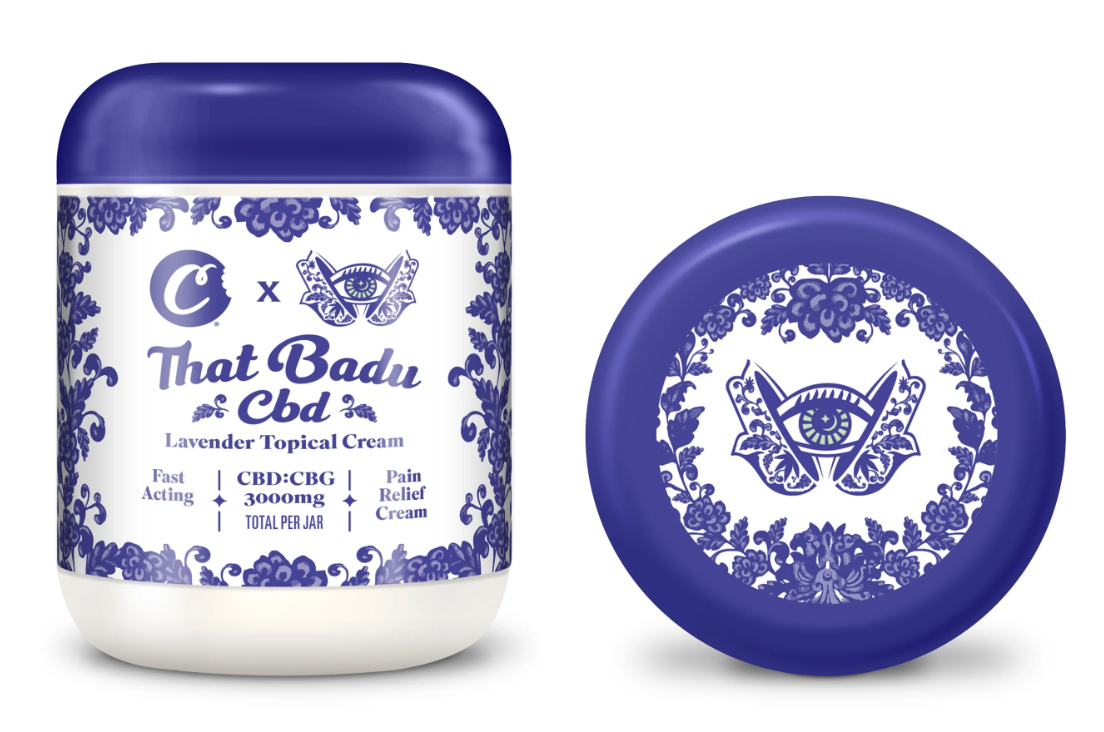Fall is here, and America’s millions of CBD and hemp cannabinoid consumers still face an elusive expanse of rules and regulations that change as rapidly as the autumn leaves.
- 90 new state bills would regulate hemp
- Cookies scores a University of Southern California deal
- And Cann’s 2mg Grapefruit Rosemary is delicious
Looking to make sense of the chaos? Leafly has you covered. Read on for your monthly news roundup of all things CBD, delta-8, THCA, and other hemp molecules.
Top CBD, delta-8 news of September


In a dramatic first for the hemp industry, the multinational brand Cookies has entered into a multi-year sponsorship deal with a university sports team. Beginning this season, Cookies will be an official sponsor for the University of Southern California Trojans football, as well as USC’s men and women’s basketball. According to a press release, “on-site tailgate experiences” will occur at select events; your good is as good as ours what that will look like.
CBD and hemp legal news
In 2024 alone, US states have introduced 90 bills to regulate hemp. Yikes! The Libertarian-minded crew at the Reason Foundation recently dropped a proposal to streamline and standardize the US hemp industry. You can read it here.
California
Californians are “panic buying” thousands of dollars of CBD and other hemp products in advance of Governor Gavin Newsom (D)’s anticipated emergency ban on all hemp products containing trace amounts of THC in the Golden State.
Related
Leafly’s 5 top THCA flower brands of 2024
Missouri
Drama continues to unfold in Missouri, where Governor Mike Parson hopes to ban intoxicating hemp products. On September 18, the state health department rebuffed Parson’s plan. Hemp sales are back on, for the time being.
Texas
The Texas Supreme Court will consider whether to outlaw delta-8 sales in an upcoming case. According to the Texas Hemp Industries Association, the state’s hemp business is worth $8.1 billion, and delta-8 makes up a $6.8 billion piece of that pie.
Related
Leafly’s top 5 delta-9 THC gummies of 2024
US Federal
A US Circuit Court ruled on September 4 that the super-potent hemp-derived cannabinoid THC-O (aka THC-O acetate) qualifies as hemp, per language in the 2018 Farm Bill. The ruling puts the Court at odds with the DEA, who argue that THC-O does not meet the definition of hemp, and thus remains federally illegal. But since SupCo struck down the Chevron Doctrine this year, circuit courts no longer need to rely on a federal agency’s opinion to issue a ruling. We’ll see what happens next.
Shop highly rated dispensaries near you
Showing you dispensaries near
On October 15, the US Supreme Court will hear oral arguments in the case of a truck driver named Douglas Horn who failed a drug test after consuming a CBD product that allegedly did not contain any THC. Horn subsequently lost his job. He hopes to sue the manufacturers of the CBD product, Dixie X..
On September 4, the FDA sent a warning letter to a North Carolina-based skincare company called Root Bioscience Brands. The letter alleges that the company made medical claims about its CBD and other cannabinoid products that it does not have qualification to do, since CBD is not an approved drug. The company complied.
Related
Leafly’s top 6 CBD creams of 2024
This one’s weird: Former Arkansas governor Mike Huckabee (R) is suing Meta (the parent company of Facebook). Huckabee alleges the company ran fake ads suggesting that he’s endorsing a CBD product.
We love Cann’s 2 mg tonics!

Packaged in a cute mini-can, this zippy beverage delivers a bouquet of subtle flavors and a clean, mellow buzz…
We interrupt our news broadcast to offer a quick review on one of our favorite hemp-derived beverages Leafly HQ: Cann’s 2 THC mg Grapefruit Rosemary tonic. Packaged in a cute mini-can, this zippy beverage delivers a bouquet of subtle flavors and a clean, mellow buzz that helps it stand out among the competition. Cann’s products look classy, taste great and don’t launch you into a sugar rush (or subsequent nosedive).
Related
Leafly’s 6 top THC drinks of 2024
CBD and hemp science news
Heads up, Leafly Nation. As we reported earlier this month, a new study shows that contrary to a widely-held belief, CBD can actually enhance cannabis’ psychoactive effects, not diminish them.
Suppository success! A survey-based study found that Foria’s CBD suppositories reduced menstrual pain and discomfort for nearly four-fifths of all participants.
Oregon State University has received $5 million to study the potential uses of industrial hemp.
Related
Leafly’s top 6 CBD gummies of 2024
CBD and hemp industry news
Big ups, CBD! According to a new report from InsightAce Analytic, the CBD ingredient market (aka products that include CBD as an ingredient) could more than double by 2031. The report estimates that CBD saw $2.42 billion in revenue in 2023, and that the figure could reach $6.77 billion by 2031.
The first CBD lozenge has landed in Canada, thanks to a collaboration between Aurora Cannabis and Vectura Fertin Pharma. Bon appetit.
Woodstock for hemp sippers is here: The inaugural Pacific Hemp Beverage Summit is going down on October 11, 2024 in Bend, Oregon. You can find more info about the event here.
And that’s it for Leafly’s monthly novel cannabinoids news roundup. As always, it’s the Wild West out there. We’ll see you next month to report on the latest.












































